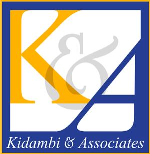Washington, DC – In a historic settlement with the Department of Homeland Security (DHS) in Shergill, et al. v. Mayorkas, there will be forthcoming changes made to the Employment Authorization Document (EADs) for H-4 and L-2 dependents.
The litigation successfully achieved the reversal of U.S. Citizenship and Immigration Services (USCIS) policy that prevented H-4 spouses from benefiting from automatic extension of their employment authorization. The individuals covered by the Settlement Agreement are: 1. L-2 nonimmigrants who are the spouse of an L-1 nonimmigrant; and 2. Qualifying H-4 dependent spouses who a) properly file an application to renew their H-4 based EAD before it expires; b) have an unexpired Form I-94 showing their status as an H-4 nonimmigrant; and c) will continue to have H-4 status beyond the expiration date of their EAD.
USCIS will interpret 8 CFR § 274a.13(d) such that certain H-4 nonimmigrants who timely file their I-765 EAD renewal applications and continue to have H-4 status beyond the expiration date of their EAD qualify for the automatic extension of their (c)(26)-based employment authorization and EADs. Such auto-extensions terminate the earlier of: the end date of the individual’s H-4 status as noted on Form I-94, the approval or denial of the Form I-765 EAD renewal application, or 180 days from the “Card Expires” date on the face of the EAD. 2. USCIS will issue appropriate guidance to employers and benefit granting agencies.
Additionally, USCIS will issue policy guidance that states that L-2 spouses are employment authorized incident to status and, in cooperation with CBP, change the Form I-94, within 120 days of the Effective Date, to indicate that the bearer is an L-2 spouse so that it can be used as a List C document for Form I-9 purposes.
